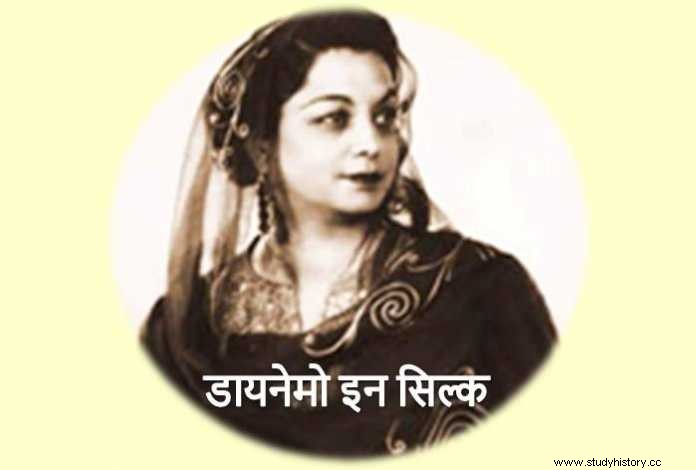
Islam of Pakistani leaders in danger !
The leaders of Pakistan needed some provocative and sensational issue to keep the people of Pakistan united and under the control of the Muslim League, which could act as an additive material to the Muslims of Pakistan. That is why the Muslim League leaders of Pakistan started intimidating the people of Pakistan by taking the name of India.
India is withholding their water, India is withholding their ammunition, India is withholding their money, India has snatched their Kashmir, India has occupied Hyderabad, Bhopal and Junagadh by force, India is holding Pakistan at any time. Things like this would have dominated the speeches, press-addresses and personal conversations of Pakistani leaders.
This created a special kind of phobia towards India among the people of Pakistan. It was essentially in the speeches of Pakistani leaders that Pakistan's Islam is in danger as long as India exists. It was just like mothers in India intimidate crying babies by taking the name of some unknown ghost or Baba to silence them. An unknown shadow of fear and terror was hovering over the minds of Pakistanis.
Within seven months of independence, Bengali leader Hussain Suhrawardy warned the Parliament of Pakistan - 'The country has set out on a dangerous path. You are crying about Pakistan being in danger just to incite the sentiments of Muslims and keep them united so that you yourself can remain in power. …… Pakistan is becoming a country whose foundation will be based only on emotion, the feeling of being in danger of Islam or the spirit of Pakistan being in danger.’
Suhrawardy had sensed that the Muslim League leaders were making Pakistan a state that could be kept under occupation only by showing the ghost of attack and which would require constant conflict between Pakistan and India to keep it united. Such a country would be full of dangers and doubts. Pakistan still promotes the national concept of anger against India.
Jinnah's successor was going to be ahead of Jinnah in terms of autocracy and bigotry. Pakistani writer and well-known journalist Tarek Fateh has written-
'After Jinnah's death, Islamists were in a full attacking mood. Those who opposed the creation of Pakistan have now become its guardians. All hopes of a modern constitution were shattered when Islamists from all over the world gathered in Pakistan to dream of creating another country under the Caliphate. The Egyptian Islamist Said Ramadan came to Karachi for the Islamization of Pakistan and Mohammed Assad, a convert from Poland, took up the task of writing down the main theories related to the country's existence. …….. The indigenous languages of Pakistan were put aside and a proposal was prepared according to which Arabic was to be made the national language of Pakistan…… a language which Pakistanis do not speak.’
After Jinnah's death in 1948, the totalitarian model of Pakistan continued to strengthen. In May 1949, when the Muslim League candidate was defeated by a newly emerging party in the by-elections to Tangail, East Pakistan, Prime Minister Liaquat Ali rejected the result and sent the newly elected member of the Constituent Assembly to jail along with several other opposition activists. Among them was the famous communist leader Moni Singh who spent 22 years in jail or underground. It got independence again only when Pakistan broke up in 1971.
It is the effort of the rulers of Pakistan that how to incite the people against India. Their attention should be diverted from the darkness of the government to India. 'Kashmir of Pakistan' whenever they find their government in danger Slogans, This is what Ayub Khan did, the same Yahya Khan did and probably every ruler would continue to do the same……. Hate is not allowed to die, it is increased. 'Hindustan ka wolf came, wolf came' Every Dictator and every Mullah there fools the public by making pleas of him and himself uses cream and butter. This is the reason that the rulers there talk less about nation building and more about the renaissance of Islam. Living in the twenty-first century himself, do not want to allow the people to progress beyond the sixteenth century.
